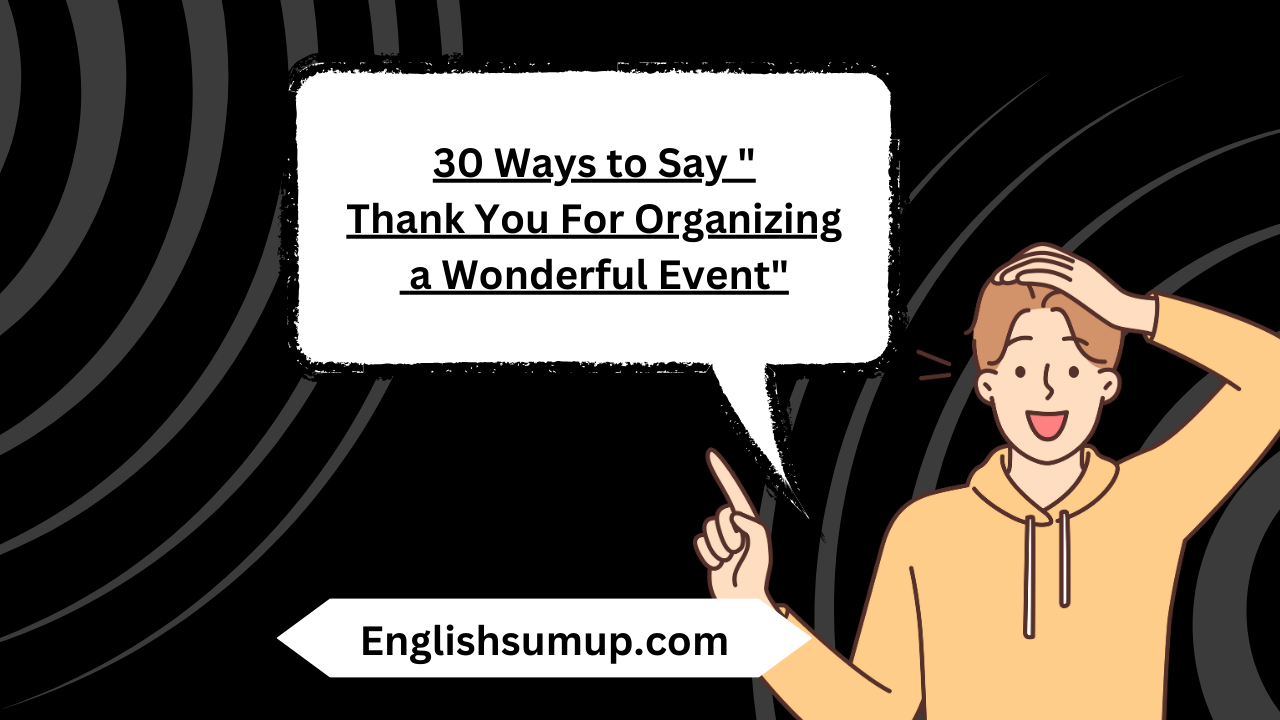Certainly, expressing concurrence with someone’s ideas or plans in a formal manner requires careful consideration of language. While the phrase “That works for me” is a viable option, one must question its appropriateness within a professional context.
Is It Formal to Say “That Works for Me”?
Utilizing the expression “that works for me” lacks the formality required in professional communication, making it unsuitable for business emails or other formal situations. Despite its effectiveness in casual conversations, its informal nature can convey an unprofessional tone in more serious contexts.
Informally, this phrase is courteous and fitting, as exemplified in the following scenario:
“Sure, that works for me, Damien! I’ll see you on Friday.”
Pros:
A highly effective conversational phrase.
Facilitates easy agreement with someone’s plans or ideas.
Cons:
Too informal for professional settings.
Inappropriate for business emails to coordinate plans.
While “that works for me” finds resonance in informal settings, its informal nature renders it impractical in formal communication. Consequently, it is prudent to be well-versed in alternative expressions that align more seamlessly with professional contexts.
Read on to discover refined ways of expressing agreement professionally, accompanied by examples for better comprehension.
What to Say Instead of “That Works for Me”
- That aligns with my plans.
- I concur.
- That’s a feasible option.
- Acceptable to me
- Excellent proposal.
- Appreciate the suggestion.
- I am amenable to that.
- I can accommodate that.
- That meets my approval.
- Adequate for my needs.
- I find that satisfactory.
1. That aligns with my plans.
When you say this, you’re indicating that the proposal or suggestion fits perfectly with what you’re already planning or aiming to achieve. It’s like finding a puzzle piece that fits snugly into place. You’re acknowledging that the idea is consistent with your goals and objectives, and that it will help you move forward in a positive way.
Sub: Agreement with Proposed Plan
Dear John,
I trust this message finds you well. After careful consideration, I want to express my agreement with the proposed plan. It aligns seamlessly with our overarching strategies, and I believe it will contribute positively to our objectives.
Looking forward to its successful implementation.
Best regards,
Devon
2. I concur.
“I concur” is a formal and precise way of expressing agreement. It denotes a shared viewpoint without unnecessary elaboration.
In a professional setting, this phrase conveys a sense of decisiveness and intellectual accord, making it suitable for situations where brevity and clarity are valued. Isn’t this better way to say “That Works for Me”.
Sub: Concurrence with Proposal
Dear John,
I hope this email finds you in good spirits. I wanted to reach out and let you know that I concur with the proposal you presented during our recent meeting. Your insights are valuable, and I fully support the direction outlined.
Thank you for your diligence.
Best regards,
Devon
3. That’s a feasible option.
When you say this, you’re indicating that the proposal or suggestion is practical and can be implemented in a realistic way. It’s like saying that the idea is doable, and that you can make it happen with the resources you have. You’re acknowledging that the idea is viable and worth exploring further.
Sub: Feasibility of Proposed Solution
Dear John,
I trust you are doing well. I’ve had a chance to review the proposed solution, and I find it to be a feasible option for addressing the challenges at hand. Your thoughtful approach to problem-solving is commendable.
Looking forward to seeing this plan in action.
Best regards,
Devon
4. Acceptable to me.
This straightforward response communicates agreement while emphasizing the acceptability of the proposal.
It’s a clear and concise way to express approval, making it suitable for various formal scenarios where clarity is paramount. Isn’t this better way to say “That Works for Me”.
Sub: Approval of Proposal
Dear John,
I hope this email finds you in good health. I want to inform you that the proposal you submitted is acceptable to me. Your efforts are much appreciated, and I believe this is a positive step forward.
Thank you for your dedication.
Best regards,
Devon
5. Excellent proposal.
When you want to convey a positive and enthusiastic agreement, describing a suggestion as an “excellent proposal” does the job effectively.
This phrase is particularly useful when you want to express admiration for a well-thought-out idea or plan. Isn’t this better way to say “That Works for Me”.
Sub: Recognition of Outstanding Proposal
Dear John,
I trust you are well. I wanted to express my admiration for the excellent proposal you presented. Your thoroughness and creativity shine through, and I am fully supportive of moving forward with this plan.
Kudos on your outstanding work.
Best regards,
Devon
6. Appreciate the suggestion.
Expressing gratitude for a suggestion while agreeing demonstrates a positive and collaborative spirit. It not only conveys agreement but also acknowledges the effort put into the proposal.
This phrase is ideal for maintaining a constructive and appreciative tone in professional communication. Isn’t this better way to say “That Works for Me”.
Sub: Gratitude for Your Suggestion
Dear John,
I hope this email finds you in good spirits. I wanted to express my sincere appreciation for the suggestion you provided. It’s well-received, and I am on board with incorporating it into our plans.
Thank you for your valuable input.
Best regards,
Devon
7. I am amenable to that.
When you say this, you’re indicating that you’re open to the proposal or suggestion, and that you’re willing to consider it. It’s like saying that you’re flexible, and that you’re willing to adjust your plans to accommodate the idea. You’re showing that you’re receptive to new ideas, and that you’re willing to listen.
Sub: Agreement with Proposed Course of Action
Dear John,
I trust this message finds you well. I want to inform you that I am amenable to the proposed course of action. Your flexibility and collaborative approach are appreciated, and I look forward to working together on this.
Best regards,
Devon
8. I can accommodate that.
By stating that you can accommodate a suggestion, you are not only agreeing but also indicating a willingness to adjust or make necessary arrangements.
This expression is useful in discussions that may require some flexibility or adaptation to ensure smooth implementation. Isn’t this better way to say “That Works for Me”.
Sub: Willingness to Accommodate Proposal
Dear John,
I hope you’re having a great day. I wanted to let you know that I can accommodate the proposal you put forward. Your insights are valued, and I believe this adjustment will enhance our project.
Thank you for your understanding.
Best regards,
Devon
9. That meets my approval.
Expressing that a proposal “meets approval” adds a touch of formality to your agreement. It signals not only agreement but also a level of scrutiny or evaluation, emphasizing that the suggestion has been considered and found satisfactory. Isn’t this better way to say “That Works for Me”.
Sub: Approval of Presented Plan
Dear John,
I trust you are well. I wanted to inform you that the presented plan meets my approval. Your attention to detail is evident, and I am confident in its success.
Thank you for your thorough work.
Best regards,
Devon
10. Adequate for my needs.
This phrase is similar to “acceptable to me.” When you say this, you’re indicating that the proposal or suggestion satisfies your requirements. It’s like saying that the idea is good enough, and that it meets your minimum standards. You’re acknowledging that the idea is sufficient, and that you’re willing to move forward with it.
Sub: Approval of Adequate Solution
Dear John,
I hope this email finds you well. I’ve reviewed the proposed solution, and it is adequate for my needs. Your consideration of the requirements is noted, and I look forward to the positive outcomes.
Best regards,
Devon
11. I find that satisfactory.
This phrase communicates agreement with a focus on satisfaction. It implies a careful evaluation and a positive judgment.
Using this expression indicates not just approval but also a level of contentment with the proposed idea or plan. Isn’t this better way to say “That Works for Me”.
Sub: Satisfactory Evaluation of Proposal
Dear John,
I trust you are doing well. I wanted to convey that I find the proposal satisfactory. Your efforts to meet our expectations are evident, and I am confident in the success of this endeavor.
Thank you for your dedication.
Best regards,
Devon
Conclusion:
In conclusion, we’ve explored a myriad of professional alternatives to the commonly used phrase “That Works for Me.” Each expression serves as a nuanced and refined way to convey agreement or approval within various formal contexts. Whether it’s emphasizing strategic alignment, expressing concurrence, acknowledging feasibility, or recognizing excellence, these alternatives provide a diverse toolkit for effective communication.
It’s essential to recognize that while “That Works for Me” may find its place in casual conversations, its informal nature can be a misfit in professional discourse. Hence, having a repertoire of alternatives is crucial for maintaining a polished and business-appropriate tone.
In your professional communications, consider employing phrases like “That aligns with my plans,” “I concur,” or “I can accommodate that.” These alternatives not only elevate the formality of your language but also ensure that your expressions of agreement resonate seamlessly in a business setting.
Remember, effective communication is not a one-size-fits-all endeavor. Tailoring your language to the formality required in a given situation ensures that your message is received with the intended tone and professionalism. So, when faced with the need to express agreement or approval, explore the diverse alternatives provided and choose the one that “Works for You” in delivering a clear, polished, and professional message.










